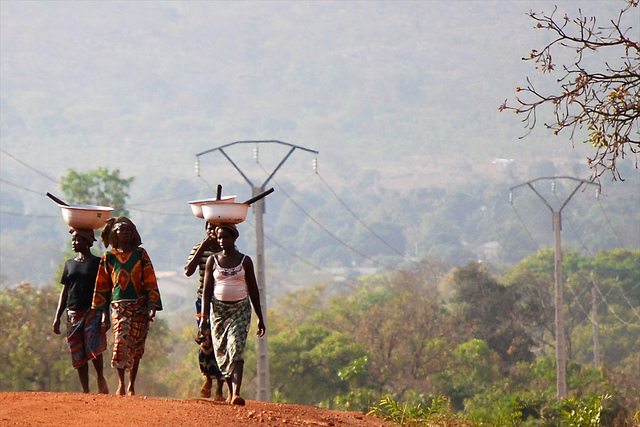
Deforestation and forest degradation produce 70 percent of tropical land-use emissions, and account for 10–11 percent of net global greenhouse gas (GHG) emissions. But forests also absorb 4–6 gigatons of carbon annually, partly from fossil fuel emissions.
The importance of forests in climate change mitigation and adaptation has strongly been recognized in the Paris Climate Agreement of 2015. Thus, the Paris Agreement and gaps therein set the stage for climate change research in FTA.
We have designed Flagship 5 to address four research questions that divide our work into four themes:
- How can we achieve effective land-based mitigation of climate change?
- How can people and forests effectively adapt to climate change?
- How can we sustainably produce bioenergy in developing countries?
- How can we reliably assess the performance of policy and practice addressing these goals?
Forests, trees and agroforestry ecosystem services are vital for the Paris mitigation goal to keep the warming of the earth’s temperature to below 2.0 or even 1.5°C. They support livelihoods of one billion people worldwide, and provide goods and services such as timber, energy, and tourism to billions of people more.
With better adaptation to climate change, forest-dependent people, smallholder agroforestry farmers, and the world as a whole, become more resilient against climate shocks.
Effective, cost-efficient and equitable (3E+) policies and practices make use of forests, trees and agroforestry resources and combine climate change mitigation and adaptation with economic development.

What we want to achieve
Our research efforts aim to contribute to reducing deforestation by 10–30 percent in six countries with more than half of the global tropical forest cover: Brazil, Democratic Republic of the Congo (DRC), Indonesia, Cameroon, Peru, and Vietnam.
We want to achieve this goal by helping governments to better formulate policies and by producing knowledge that helps governments and businesses, non-governmental organization and practitioners, farmers and foresters to act in ways that mitigate climate change.
We also do research in other countries, to support them in developing climate policies and practices.
The climate change work of FTA could contribute to saving 500,000 to 1,600,000 ha of forests annually, which would avoid emissions of approximately 0.2–0.6 gigatons CO2 . This corresponds to 5–15 percent of the total annual land-use emissions of 3.3 gigatons CO2 and would positively affect at least half a million forest-dependent people directly, and 1.5 million people indirectly, i.e. those depending on remote forest products and services.
Restoration efforts could bring back important carbon stores that have been diminished over the last decades. Without those, it will be hard for the world to achieve the Paris goals.
